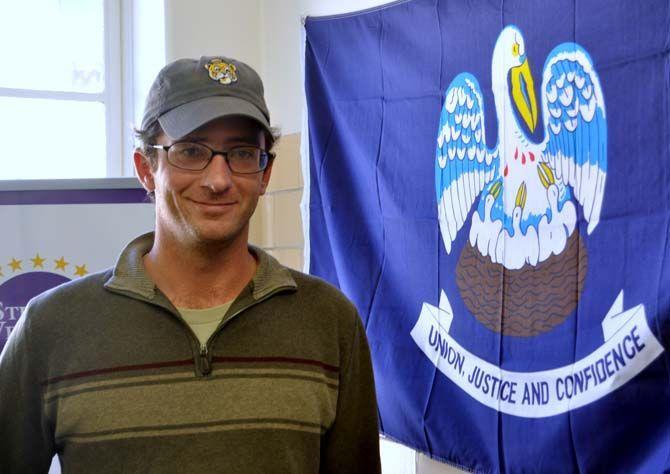Petroleum engineering senior Ryan Gibson said his most stressful episode at college came when he scored his first “D” on an exam — a sinking feeling many University students can relate to.
But the 31-year-old former Marine, like hundreds of other student veterans on campus, brought with him many wartime experiences most of his classmates could not identify with.
The most nerve-wracking chapter of Gibson’s eight years in the military began on a rainy hilltop outside of Pakistan.
Gibson and his fellow Marines spent three days and nights on a hill in the middle of January. Their sleeping bags were water resistant, but after a few hours, Gibson said he and his group were lying in puddles.
The sky cleared and the sun finally emerged when the Marines hiked downhill on the fourth morning.
“All we can think about is going back and getting hot breakfast,” Gibson said.
As a group of Humvees transported the soldiers back to base camp, Gibson said he heard a small “pop” in the ground, signaling the initiation of an improvised explosive device. The convoy came to a stop.
“In order to blow the main charge, you have to blow a smaller, less stable charge to detonate,” Gibson said. “The best I could tell, the smaller charge wasn’t connected to the main charge, and so when it detonated, it just kicked a little dirt off.”
Gibson, the engineer on the patrol, was called to investigate and dispose of the explosive.
“I had to walk up and look at this hole in the ground, not knowing what was underneath it and not knowing if it was going to blow up again,” Gibson said.
Though an Explosive Ordinance Disposal team was eventually called in to dig up the mine, Gibson still vividly remembers approaching the bomb.
“That was probably the most stress I had in the military. Either that or the Air Force shooting in our direction one time,” Gibson said. “One or the other.”
Gibson is originally from Sunset, a small town outside of Lafayette, Louisiana.
“I wanted to be close enough to home so I could go home,” Gibson said. “I wanted to be far enough away so I can be away.”
Gibson works as a supplemental instruction leader for a physics course. He has an office of his own, but occasionally visits the Office of Veterans Affairs to interact with other former soldiers.
“I find a lot of my classmates are a lot younger,” Gibson said. “I don’t share enough experiences with them.”
Talking to past soldiers in the Office of Veterans Affairs allows veterans to vent frustrations average college students would not understand, Gibson said.
He takes particular offense to peers talking over professors in class — a practice unheard of in the military.
“If I’m going on a rant and a rave about it with one of these guys, they’ll laugh it off and understand where I’m coming from on that one,” Gibson said.
Gibson explained the divide between veterans and traditional students as both groups having a different definition of “extreme.” What veterans consider pressure is vastly different from the struggles of everyday college life, Gibson said.
The former soldier gets annoyed at the idea of students being stressed out over having two tests in one week.
“Oh, is that the end of the world? I mean really? Is that the extent of your problems?” Gibson said. “That kind of stress doesn’t affect us as much. But on the other hand, whenever we’re in class and you can’t hear the professor, that in turn will stress us out while other people might think that’s negligible.”
Gibson described college as a lonelier lifestyle than his time in the Marines and said he had to adjust to not having a responsibility to others.
“The only time you’re really held accountable is at the end of the semester when you get your grades,” Gibson said. “You’re just in this kind of on your own, as opposed to being constantly in the group with a similar drive, similar motivation.”
When he meets younger veterans on campus, Gibson advises them to take their education at the University as seriously as he has.
“You’ve got to get your ducks in a row beforehand. When you’re doing it, you’ve got to make sure you’ve checked every box that needs to be checked and do it like you’re presenting it to your superiors,” Gibson said. “Treat school like a mission.”
Former Marine adjusts to University life
By Quint Forgey
November 20, 2014
Petroleum Engineering student worker and Veterans Center member Ryan Gibson spends time in the Veterans Center Wednesday.




